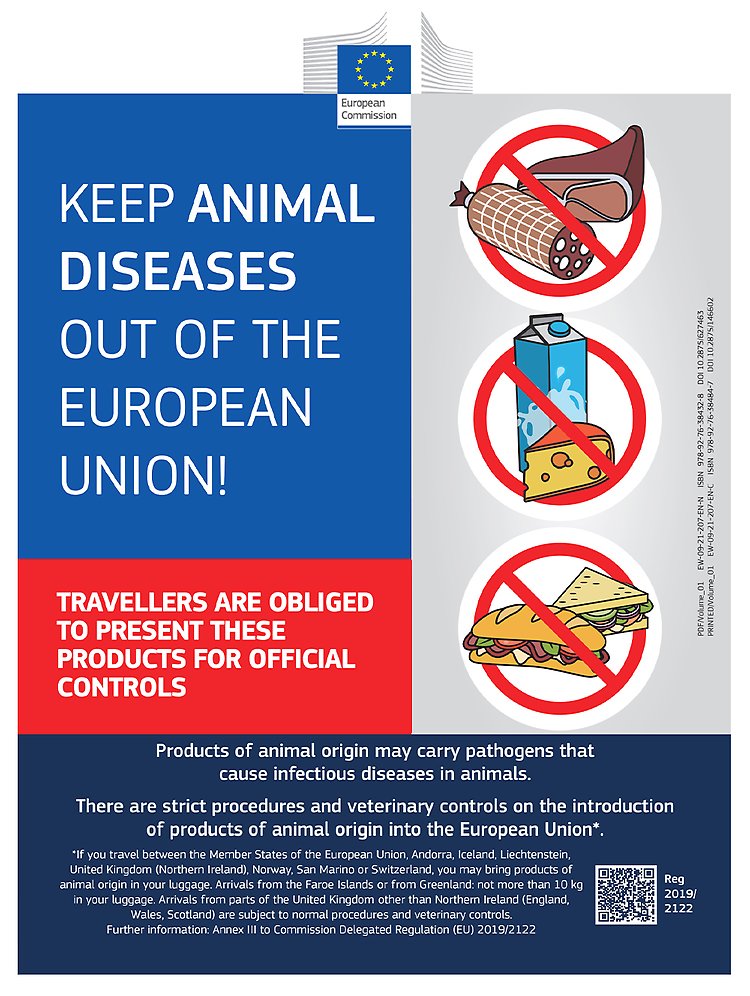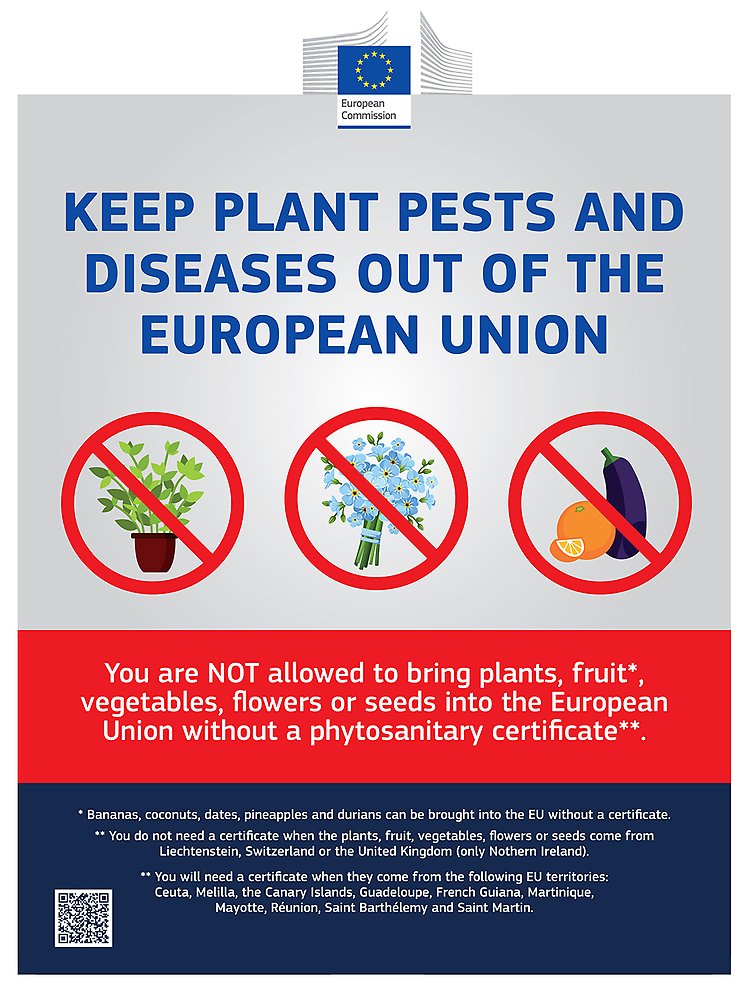Buying foodstuffs when travelling
When you bring food into Sweden for personal use, different rules apply depending on whether you are bringing the food from another EU country or from a country outside the EU.
What food can I bring into Sweden? The Swedish Board of Agriculture is the responsible authority, and you can read about which foods are prohibited and which are permitted on their website.

From an EU Member State
If you are travelling to Sweden from another EU country, you are generally free to bring food for personal use with you. You do not pay customs duty or tax when you bring food to Sweden from another EU country.
The Canary Islands belong to the EU, but in the context of plant health, the Canary Islands are considered outside the EU. If you want to bring fresh fruits, vegetables and herbs from there, the same rules apply as from a country outside the EU.

From a country outside the EU
Certain types of food, fresh fruits and vegetables are prohibited from being brought into Sweden from a country outside the EU. The same rules apply throughout the EU, including Norway and the Canary Islands.
Animal products
The rules for food of animal origin, such as meat, milk or egg, are strict because these goods can spread infectious diseases. These goods are prohibited from being brought into the EU – but there are some exceptions, such as Norway, Iceland, San Marino and Andorra.
Fresh fruits and vegetables
It is prohibited to bring most fresh fruits and vegetables into the EU if they come from a country outside the EU. The reason for this is that there is a very high risk that they will spread harmful organisms. For these goods, you must have a phytosanitary certificate. The phytosanitary certificate must be checked and approved by the Swedish Board of Agriculture before the goods are brought into Sweden. Goods that do not have a phytosanitary certificate may not be brought into Sweden.
Goods that are allowed
Goods that do not require a phytosanitary certificate include coffee, tea, spices, dried products as well as fresh pineapple, banana, dates, durian and coconut.
At The Swedish Board of Agriculture you can read more about which foods are prohibited and which are permitted.
Customs duty and VAT
Bringing foodstuffs to Sweden from a country outside the EU may incur customs duties and VAT.

Is the country part of the EU?
If you are unsure whether the country you are trading with is an EU Member State or not, you can see a list of all EU Member States or search for a specific country on the website of the EU.

Questions and answers about buying foodstuffs when travelling
What foodstuff can I bring from Norway to Sweden?
You may bring products of animal origin for personal use from Norway to Sweden.
However, there are no exceptions for fresh fruits, vegetables and other foods of plant origin. You must have a phytosanitary certificate.
Can I bring chicken from Asia to Sweden?
No, you cannot bring any meat or dairy products to Sweden from a country outside the EU.
My sister is travelling to Thailand. Can she bring foodstuffs back to Sweden for me?
Your sister may bring food products from Thailand if it is a gift and their value does not exceed the limit of SEK 5,000.
Consider the following:
- The products may not contain meat or dairy (animal products), as this is a country outside the EU.
- It is also prohibited to bring in fruit and vegetables from a country outside the EU, with a few exceptions. For these goods, you must have a phytosanitary certificate.
I’m planning a business to import fresh fruit to Sweden from Lebanon. What should I do?
If you want to import foodstuffs commercially (i.e. for commercial trade), you must, first and foremost, be registered with the environmental department (or similar) of your local government authority. You should also contact the Swedish Food Agency for more information about importing fruit.





